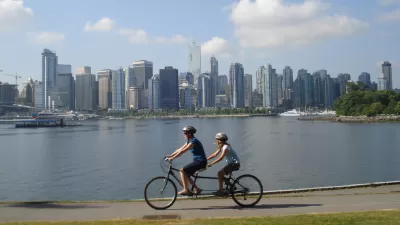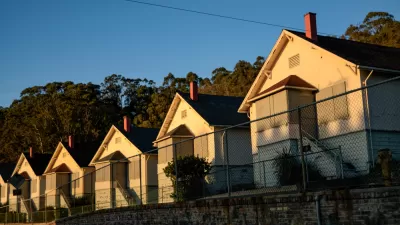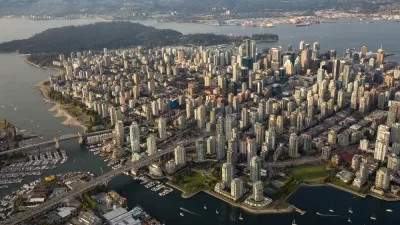The Vancouver Empty Homes Tax will soon be three times as high as it was when adopted in 2017.

"The empty homes tax in Vancouver will more than double next year," reports Alyse Kotyk. "Council voted in favour of increasing the tax from 1.25 per cent to three per cent for 2021."
The city adopted the tax in 2017 to control the cost of housing in the expensive city (along with a foreign buyer tax) by removing incentives for speculation, starting the tax originally at 1 percent, according to Kotyk.
Another article by Eric Zimmer details the results of the Empty Homes Tax on several key housing market metrics: "According to the city, there has been a 25% reduction in the number of vacant properties recorded between 2017 and 2019. Of the 1,989 properties declared vacant in 2018, 41% were converted to occupied status last year."
The Empty Homes Tax has also raised revenue for new affordable housing projects totaling $61.3 million, along with another $25 million for the 2019-2022 Community Housing Incentive Program, "which provides grants to non-profit housing operators to improve the affordability of social housing and co-op housing projects," according to Zimmer.
Another article by CBC News cites analysis by the Canada Mortgage and Housing Corporation that credits the tax with pushing 5,000condominiums to the rental market in 2019, including 3,000 units in Downtown Vancouver alone.
FULL STORY: Vancouver's empty home tax is increasing to 3% next year

Study: Maui’s Plan to Convert Vacation Rentals to Long-Term Housing Could Cause Nearly $1 Billion Economic Loss
The plan would reduce visitor accommodation by 25,% resulting in 1,900 jobs lost.

North Texas Transit Leaders Tout Benefits of TOD for Growing Region
At a summit focused on transit-oriented development, policymakers discussed how North Texas’ expanded light rail system can serve as a tool for economic growth.

Why Should We Subsidize Public Transportation?
Many public transit agencies face financial stress due to rising costs, declining fare revenue, and declining subsidies. Transit advocates must provide a strong business case for increasing public transit funding.

How to Make US Trains Faster
Changes to boarding platforms and a switch to electric trains could improve U.S. passenger rail service without the added cost of high-speed rail.

Columbia’s Revitalized ‘Loop’ Is a Hub for Local Entrepreneurs
A focus on small businesses is helping a commercial corridor in Columbia, Missouri thrive.

Invasive Insect Threatens Minnesota’s Ash Forests
The Emerald Ash Borer is a rapidly spreading invasive pest threatening Minnesota’s ash trees, and homeowners are encouraged to plant diverse replacement species, avoid moving ash firewood, and monitor for signs of infestation.
Urban Design for Planners 1: Software Tools
This six-course series explores essential urban design concepts using open source software and equips planners with the tools they need to participate fully in the urban design process.
Planning for Universal Design
Learn the tools for implementing Universal Design in planning regulations.
City of Santa Clarita
Ascent Environmental
Institute for Housing and Urban Development Studies (IHS)
City of Grandview
Harvard GSD Executive Education
Toledo-Lucas County Plan Commissions
Salt Lake City
NYU Wagner Graduate School of Public Service




























